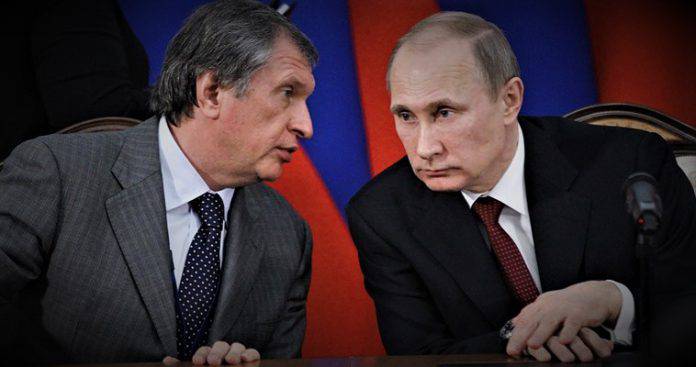Giorgos Iliopoulos: Game over for Turkey in Iraq
26/11/2020
Following Russia’s moves in the Syrian energy sector, which include the blockade of Turkey, a new move, implemented ten days before Moscow’s intervention in the Caucasus, is also closing the door for Turkey in Iraq. The victim of this behind-the-scenes move is the state-owned Turkish Oil Company (TPAO), which until recently was the leader of a consortium for the development of the huge Mansuriya gas field.
The cancellation of the contract brings Moscow back to where it left off in 2017. It allows it to exploit the field, through the giant energy group ROSNEFT, with the primary goal of expanding and gradually controlling southern Iraq, as it has already done, in the north.
The plan focuses on maximizing crude oil and gas flows, which will also be part of a wider energy export corridor to Syria, with a final destination in Europe. By the end of 2017, ROSNEFT had already completed its moves to control the energy sector of semi-autonomous Kurdistan in northern Iraq.
The Kremlin is careful
The first move concerns the financing of the government of Iraqi Kurdistan with $ 1.5 billion, which is an advance for deliveries of crude oil with a horizon of three to five years. The second move focuses on acquiring 80% of exploration and exploitation rights in five promising energy areas. The third concerns the acquisition of 60% of the vital pipeline there with the obligation to finance an investment of 1.8 billion dollars to increase its capacity to one million barrels per day.
Following these moves, Moscow realizes that it is in control of a strategic position that allows it to mobilize a high level of leverage to gain a similar position in southern Iraq, especially in the field of locating, developing, and exploiting new deposits. At the same time, he has the luxury of appearing as a mediator-peacemaker in the long-standing Kurdish-Iraqi conflict.
Armed with energy deals and spearheading energy groups, the Kremlin is carefully planning its moves, with the brains of ROSNEFT chief Igor Sechin. Sechin is considered by the Western media to be a close ally of Putin and his de facto vice president. At the same time, he leads the Siloviki team, which is made up of former high-ranking intelligence officials, being a powerful lever for pressure.
The surprise
This man’s cunning is evidenced by the fact that he is delaying operations in southern Iraq in order to distance ROSNEFT from the growing anti-American climate instigated by Iran and manifested in deadly raids against US facilities. In the first half of 2020 alone, there have been 18 major attacks on US military installations, although, with the signing of the 25-year-old Tehran-Beijing Memorandum, they have waned and stopped.
This is Sechin’s chance to put pressure on Baghdad behind the scenes, eventually ousting TPAO from Iraq. However, the Russian ambassador to Baghdad, Maxim Maksimov, had indirectly warned the Turks that the Mansuriya deposit was a key element of Russian planning. According to Maksimov, Russian energy groups appear willing to mobilize significant investments, including Mansuriya.
Eventually, under the pretext of delays and inconsistencies in such important projects, the Iraqis canceled the contracts of the Turks, in order to hand them over to ROSNEFT. The deposit is located a short distance from the border with Iran, just north of Baghdad. It is estimated that its reserves amount to 4.5-4.6 trillion cubic feet of natural gas planned to produce 320 million cubic feet per day.
The Mansuriya deposit
When gas prices return to normal levels and reach $ 70 a barrel equivalent, the field will generate a lot of revenue. But its importance is far greater than the expected economic benefits for two very important reasons. The first concerns the fact that Iraq is keen to combine three gas fields (Mansuriya, Akkas, and Siba) into a single development contract, a term accepted by Sechin. The three areas form a stepped triangle in southern Iraq (Siba is a short distance from the port of Basra and Akkas is almost on the border with Syria.
The second reason was revealed in September 2019 when the Iraqi Ministry of Petroleum signed a contract with Russian STROYTRANSGAZ for the development of the unknown Block 17 in an area in Anbar province. It is a zone steeped in violence and uncertainty that even ISIS has avoided. For the Russians, however, the region lies in the middle of what the Americans call the backbone of the former Islamic State in the area where the Euphrates flows west to Syria and continues to the east.
The benefits for the Russians
Along the “backbone” and from east to west are the historically fanatical anti-western cities of Fallujah, Ramadi, Hit, and Haditha. Next are Syria and the strategies for the Russian port facilities of Banya and Tarsus in the Mediterranean. STROYTRANSGAZ ‘s move is part of a plan to integrate the pipeline systems of Iran, Iraq, and Syria into a single network. This, however, will take time to complete.
The time horizon of the projects requires the intermediate development of the Mansuriya-Akkas-Siba triangle for the transportation of Iranian crude oil either to the south to the markets of Asia, or to the west for the corresponding ones in Europe. For the Russians, this arrangement has nothing but benefits. It ensures control of Iranian flows – in good cooperation with the Chinese – wherever required.
At the same time, the Baghdad-Tehran cooperation is being promoted, in order to complete the process of decisive influence on the Shiite crescent. In addition, flow control allows Moscow to avoid competing moves against Russian exports and plans to increase its influence by leveraging gas exports to Europe.
With Beijing in the background
The geography of the central Middle East allows the creation of a strategic bridge, which from Iran crosses Iraq, ending in Syria. Although the Erdogan regime has tried to get involved, counting on the Kremlin for hefty trade-offs, developments show that Turkish efforts have so far yielded no results.
One month before the expulsion of TPAO, the giant state-owned China National Petroleum Corporation (CNPC) in cooperation with the China National Offshore Oil Corporation (CNOOC) jointly expressed interest in acquiring the share of US EXXON-MOBIL in one of Iraq’s largest deposits, West Qurna 1. The value of the share (32.7%) is estimated at $ 500 million, although no final decisions have been made because they are hampered by geopolitical uncertainty in OPEC’s second-largest producer country.
In 2010, EXXON-MOBIL had signed an agreement with the Iraqi state-owned company, South Oil Company, to upgrade and maximize the development of the West Qurna I field in the south. The American group led a consortium, in which a subsidiary of the ROYAL DUTCH group also participated with a share of 19.6%, which in 2018 was transferred to the Japanese group ITOCHU. The Indonesian PERTAMINA with 10% and the Oil Exploration Company with 5% also participate in the scheme. The deposit at West Qurna I produces just under 500,000 barrels per day.
In the spring of 2019, EXXON-MOBIL evacuated the facilities for a few weeks, interrupting their operation, citing security reasons on the occasion of the confrontation between Iran and the USA and Saudi Arabia. The problem arose after the Americans decided to withdraw unnecessary military personnel from Iraq on the pretext that attacks by Shiite militias were planned at the behest of Tehran. But then-Iraqi Oil Minister Thamer Ghadhban denounced EXXON-MOBIL’s stance as unjustified, and since then Baghdad has been almost hostile to the US company.
The Iraqi government’s view that the shutdown of EXXON-MOBIL’s facilities was not for security reasons, but for political motives, and favors Beijing’s attempt to take control of the consortium. Undoubtedly, the Chinese are operating in Iraq in coordination with the Russians.







